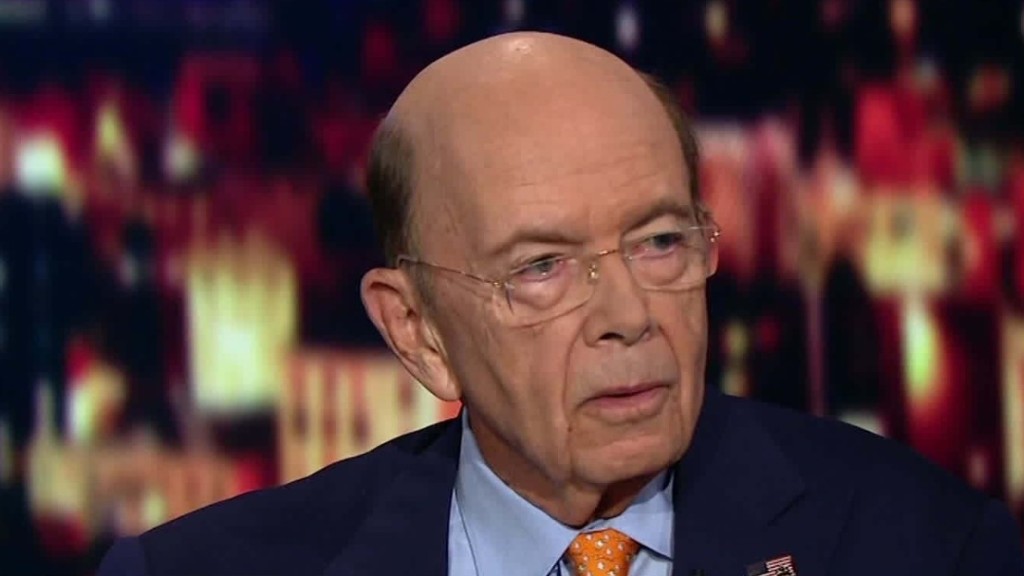
President-elect Donald Trump is clear: Starting Day 1, he wants to renegotiate or withdraw from NAFTA, the free trade deal among three countries: America, Canada and Mexico.
Trump's pledge begs the question: Where do you start?
Trump could begin with a controversial chapter of NAFTA that some experts believe gives corporations an incentive to create jobs across the border by giving them too much power to skirt and battle foreign government laws.
It's in Chapter 11 of NAFTA and it''s called the investor-state dispute settlement or ISDS.
It gives U.S. corporations the power to sue the Canadian or Mexican government on regulations they say impose a burden on their business operations in those countries. It doesn't matter if the regulation is in the public's interest or that their local competitors have to abide by the same rules.
Instead of going to a Canadian or Mexican court, U.S. corporations can head straight to an arbitration panel allowed by NAFTA. The panel ultimately decides who is right or wrong, and can slap countries with stiff fines.
The clause has drawn sharp criticism and support from trade experts.
Related: America's surprise NAFTA nemesis: Canada
"I favor abolishing ISDS," says Scott Sinclair, director of trade policy research at the Canadian Centre for Policy Alternatives. "Canada and Mexico in particular have suffered under ISDS. We've had a very negative experience."
Take the case of ExxonMobil (XOM) versus Canada. Exxon argued against Canada's requirement that it invest in local research and development, such as education, job training and innovation. It's meant to ensure oil drillers provide an economic benefit to the local province where they're drilling.
Exxon said the regulation was too onerous. It took the case to a NAFTA panel in 2012 and won. Canada was forced to pay Exxon about $14 million. Canada didn't repeal the law, so Exxon has filed a second case seeking more cash.
Experts disagree on the overall impact of the rule. On one hand, it gives companies assurance that they can invest abroad and won't get crushed by foreign regulations.
Related: TPP is 'meaningless' after Trump pulls the plug
On the other hand, it allows a company to go head-to-head with a foreign country -- an idea that bothers some.
"It goes way too far in giving corporations a power against foreign governments that they don't have against their own government," says Alan Deardorff, a trade expert at the University of Michigan. "If anybody is going renegotiate anything in NAFTA, that would be the thing I would want to see renegotiated."
Canada and Mexico have paid dearly in NAFTA cases while the U.S. government has won all its cases.
Canada has paid $160 million to corporations, almost entirely American, since NAFTA was implemented in 1994. Mexico has paid $204 million,according to the Canadian Centre for Policy Alternatives.
Canada has received 39 claims against it, while Mexico has had 24. The U.S. has received 21 claims against it and it's never lost one, according to the U.S. Trade Representative.
The provision has support from some trade experts.
"It is overstated as a problem," says Merit Janow, dean of Columbia's School of International and Public Affairs. Janow, who served in the first Bush and Clinton administrations, negotiated a dozen trade agreements with Japan and China for the U.S.
Related: Carrier strikes deal with Trump to keep jobs in Indiana
The rule says that if "an [arbitration] panel comes to the conclusion that the state has abridged the investor's rights then there would be compensation for the cost of that impairment."
Ending it doesn't guarantee companies would bring jobs back. After all, this provision is in 50 trade agreements America has with various nations. Globally, it is in 3,000 agreements to varying degrees, according to the U.S. Trade Representative.
And it's not the primary incentive for companies to move jobs elsewhere -- cheap labor and low environmental standards usually are. Still, it's a hotly debated topic among trade wonks in all three countries.
Oddly, few experts know how the chapter got into NAFTA, which was signed into law by President Bill Clinton.
"I was in the Clinton administration when NAFTA was passed, and there was never, never...a discussion about Chapter 11," Nobel Prize winning economist from Columbia University Joseph Stiglitz said Tuesday in New York.
Editor's note: An earlier version of this story stated that ExxonMobil received $44 million from the Canadian government. It claimed $44 million in damages, but only received $14 million in compensation.


